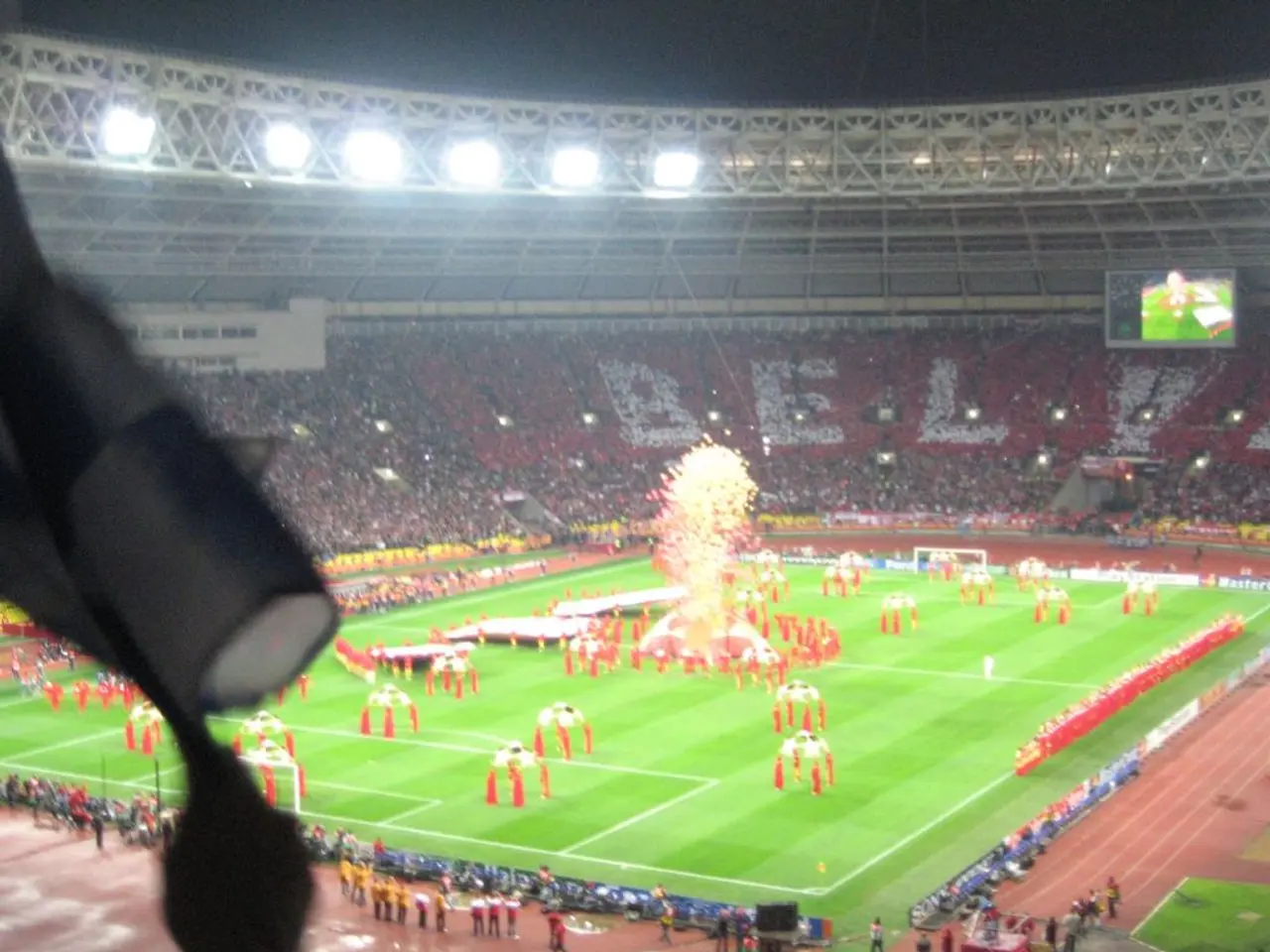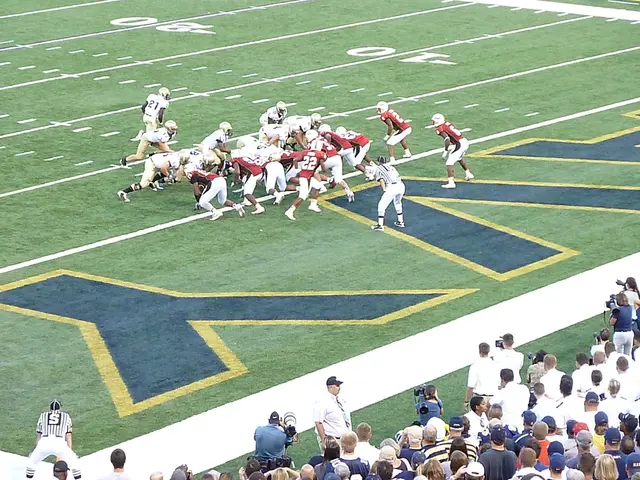Madrid's firm stance: They categorically refuse the US-based match, foretelling a crucial juncture in global soccer.
In a significant turn of events, Real Madrid has voiced its opposition to a potential Spanish league game being played in the United States. The match, scheduled to be between Villarreal and Barcelona, would mark the first of its kind in La Liga and is set to take place at the Hard Rock Stadium.
The objection from Real Madrid stems from concerns about the integrity, fairness, and equality of the competition. By moving Villarreal’s home match against Barcelona to Miami, the usual home-and-away balance—an essential principle of fairness in league football—is broken, potentially giving an unfair sporting advantage.
Real Madrid has also raised concerns about the decision being made without consultation of all clubs involved. The club has appealed to FIFA, UEFA, and Spanish sports authorities to block the game, citing the potential for a problematic precedent for domestic competitions.
The potential consequences for the world of football include a turning point in football governance and tradition, as this would be the first time a European domestic league match is held outside its home country during the regular season. This could potentially open the door for other leagues to consider hosting games abroad.
There are also risks to sporting integrity, as allowing exceptions for non-sporting interests (such as commercial or promotional gains) may adulterate competitions and hurt credibility. Legal and regulatory challenges also arise, as FIFA has rules traditionally prohibiting domestic league games outside their country, though FIFA has recently reviewed these policies and is considering changes.
The league's attempts to play in the U.S. are part of its long-term partnership with sports and entertainment group Relevent Sports. Villarreal president Fernando Roig stated that the match would be the first Spanish team to play a league match abroad, and the club is offering free travel and tickets for season-ticket holders if the match is approved.
However, Real Madrid has firmly rejected the idea of a regular-season Spanish league game being played in the United States. The club claims that the game being played in the United States would hurt the "integrity of the competition" and the "legitimacy of the results." Madrid has asked FIFA, UEFA, and Spain's top sports body not to authorize the game in the U.S.
Madrid and Spanish league president Javier Tebas have often been at odds on various issues. Madrid has stated its commitment to respecting the national and international rules that guarantee the fairness and proper functioning of official competitions, and any modification of this nature must have the express and unanimous agreement of all the clubs participating in the competition.
The league had offered compensation packages for Girona fans in 2018 when an earlier attempt to stage a match in the U.S. between Barcelona and Girona was dismissed due to criticism. Madrid's stance against the U.S. game highlights the ongoing debate about the balance between commercial expansion and preserving the core sporting values of domestic football leagues.
FIFA is moving toward ending decades of soccer tradition by reviewing its policy that blocks domestic league games from being played in other countries. Relevent Sports, the sports and entertainment group partnered with the league, holds exclusive negotiating rights over the global commercial rights to the UEFA men’s club competitions for the period 2027-2033.
Season-ticket holders who do not wish to attend or cannot attend the potential Miami match will receive a 20% discount on their season tickets. Despite these incentives, the match remains a contentious issue, with Spanish players' and supporters’ associations expressing opposition due to the disruption of tradition and logistics.
[1] "Real Madrid and Barcelona in Miami: A controversial step for La Liga." BBC Sport, 2022. [2] "Real Madrid opposes Spanish league game in the United States." ESPN FC, 2022. [3] "FIFA to review policy on domestic league games abroad." The Guardian, 2022.
- The move to play a Spanish League game between Villarreal and Barcelona in the United States, set to be the first of its kind, has been opposed by Real Madrid, citing concerns about the integrity, fairness, and equality of the competition.
- Real Madrid has expressed worries that the usual home-and-away balance in league football would be broken, potentially providing an unfair sporting advantage. The club has appealing to FIFA, UEFA, and Spanish sports authorities to block the game, fearing a problematic precedent for domestic competitions.
- The controversial decision to host a European domestic league match in the United States during the regular season could potentially open the door for other leagues to consider hosting games abroad. This could lead to a turning point in football governance and tradition.
- Sports analysts argue that allowing exceptions for non-sporting interests may adulterate competitions and hurt credibility. Legal and regulatory challenges also arise, as FIFA has rules traditionally prohibiting domestic league games outside their country, though FIFA has recently reviewed these policies and is considering changes.
- AI-driven sports analysis predicts that the potential Miami match could hurt the "integrity of the competition" and the "legitimacy of the results," based on the impact it may have on the usual home-and-away principle and potential disruption of traditional league dynamics.








